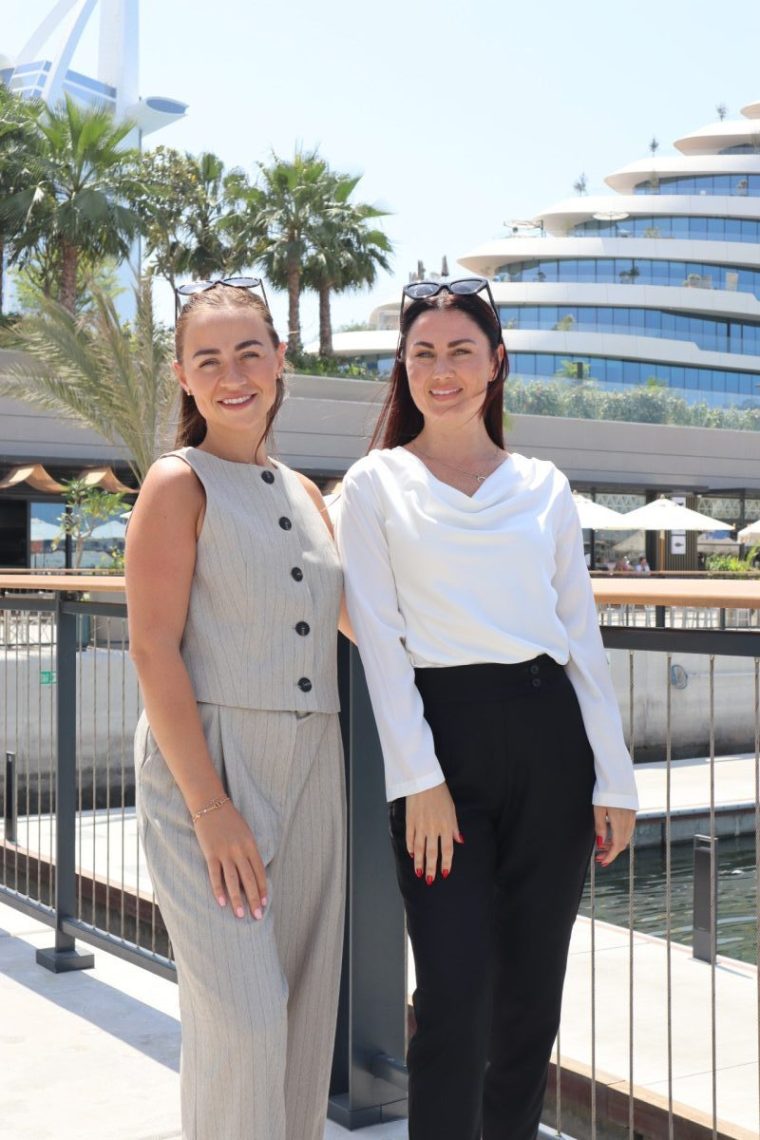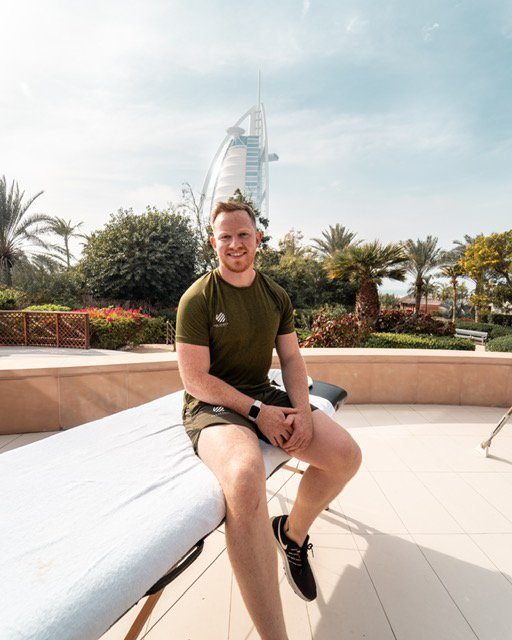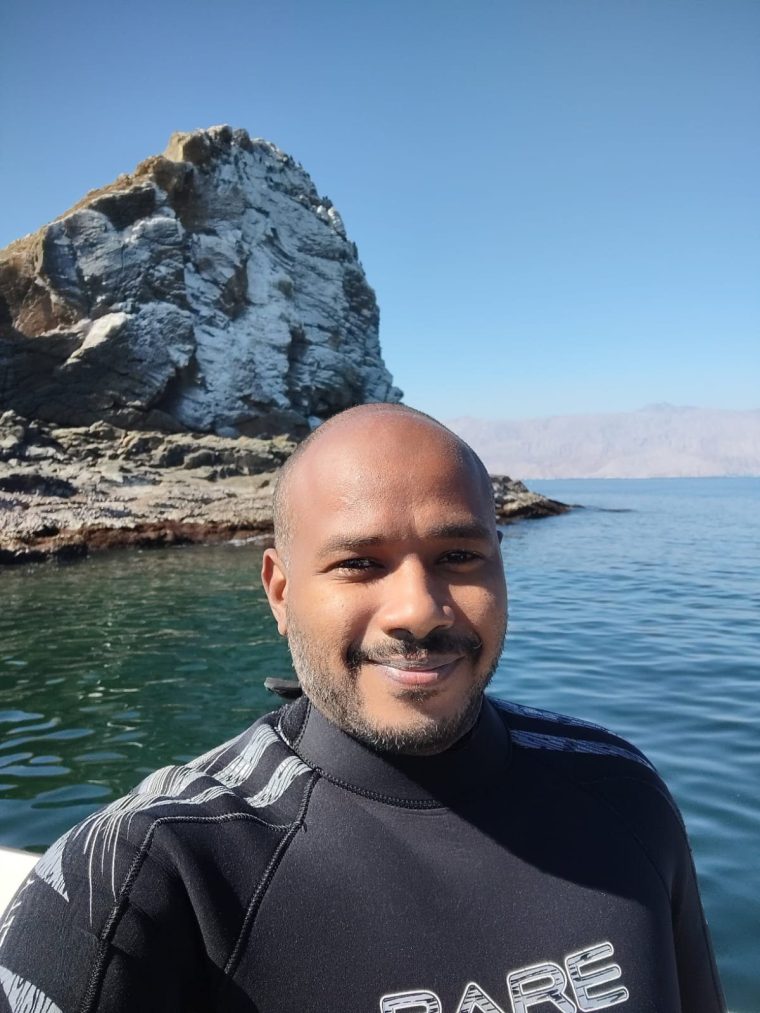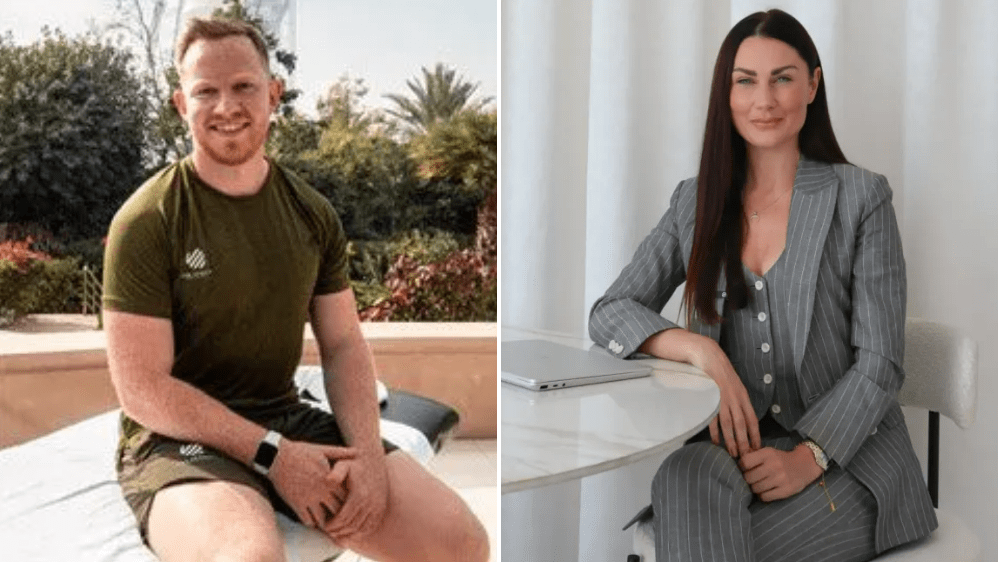Soaring numbers of British healthcare workers are leaving the NHS in search of less stress, better pay and quality of life in the UAE
When Natalie Oakes, 38, qualified as a nurse in 2007, she visualised a long career in the NHS. But after 10 years working her way up from a staff nurse in NHS Lothian to a manager in infection control, a Facebook ad looking for Western-trained medical staff interested in working abroad changed everything.
She took a nursing job at the Cleveland Clinic in Abu Dhabi before moving to Dubai a year later.
Over the past 12 years, Natalie’s career has progressed rapidly.
She is now the managing director of her own company, ICMG, a healthcare consultancy that supports workers in the UAE, and earns six figures.
“When I first moved to Dubai, I earned double what I earned in the NHS,” she says. “On top of that, there’s no income tax, you also get housing allowance for your whole contract, and they paid for a private bus transfer every day. I got £6,000 upfront to decorate my apartment when I first came out.”
 Natalie and Laura Skellam are both nurses who have set up health consultancy ICMG in Dubai together
Natalie and Laura Skellam are both nurses who have set up health consultancy ICMG in Dubai together
“Everything is just so convenient and just works in Dubai,” she continues. “If you go out for lunch, you’re going to a beach club and a five-star hotel… it shapes your mental health for the better, which shapes your physical health and whole wellbeing too.”
‘I describe Dubai as the land of opportunity’
Originally from Dumfries, Scotland, Natalie is not alone in seeking greener pastures abroad as a medical worker. One in 10 healthcare workers left the NHS in the 12 months leading up to September 2024.
Another report estimated that about 70 NHS nurses and midwives leave to work abroad daily, contributing to ever-increasing staff shortages and pressure.
While Australia, Canada, and New Zealand are touted as the best destinations for better pay and quality of life, with all three ranking higher than the UK on the OECD Better Life Index, Dubai is the sleeper hit taking over TikTok.
Videos amassing tens of thousands of views show doctors and nurses living well in Dubai. An estimated 40,000 British expats live in Dubai. In 2024, UK searches for “jobs in Dubai” spiked 50 per cent on the previous year.
Aside from doubling her earnings from about £3,000 per month to more than £6,000 tax-free in the UAE, Natalie says she fell in love with Dubai’s vibrant community. “I describe Dubai as the land of opportunity because there’s just a sense of everyone wanting to do well. Once I was here, I was like, this is where I want my life,” she says.
Natalie has now established herself as a highly respected voice in developing new healthcare guidelines in Dubai, working in tandem with the Dubai Health Authority.
“I commissioned the first British hospital in Dubai, and that’s been one of the proudest moments of my career, seeing that hospital go from literally a spade in the sand to this beautiful 100-bed hospital with extended clinics,” she says. “That was such a privilege for me and a massive step in my career.”
Natalie has partnered with Laura Skellam, 29, another British nurse who left the NHS to work in Dubai in 2020, to found ICMG.
Transitioning from the NHS to an all-private system in the UAE wasn’t straightforward. When she first arrived, Natalie took a small step down in seniority and had to adapt to Dubai’s healthcare system.
“In the UK, nurse practitioners can prescribe and are in charge of a lot more, but out here they use an American and physician-led model of care – everything you do has to be a doctor’s order,” she says. “You also go from a public, nurse-led service to something physician-led and private care, which is a business essentially, so that’s the biggest shock to the system over here.”
‘My salary is over £100,000 a year tax-free – at least double or triple what I would make in the NHS’
Although Toby Harris, 33, a physiotherapist and sports masseuse, started his career in the NHS, completing his training on a four-year degree in Scotland, he did not feel like that environment was his future.
 Toby Harris fell in love with Dubai after working as a diving coach to train athletes
Toby Harris fell in love with Dubai after working as a diving coach to train athletes
“My first experience of NHS work was the short time period you have with patients, the limited resources you can share with them, and the wait times between seeing your patients again,” he says. “I set up my private practice during my fourth year because my flash-in-the-pan experience was enough to realise that I didn’t want to work in the NHS.”
Later, after a successful run as a diving coach at the Rio de Janeiro 2016 Olympics, Toby was invited to Dubai to train potential athletes and instantly fell in love with the Dubai lifestyle of sun and success.
When Covid shut down all sports, Toby pivoted back to his roots and set up a thriving physiotherapy and sports masseuse business in Dubai, earning well beyond the highest salary bands for NHS physiotherapists, which are between £52,000 and £72,000.
“Now, my salary is over £100,000 a year and it’s tax-free, so that’s at least double or triple what I would make in the NHS,” he says. “There’s absolutely no way I would return to the UK for work.”
Comparing lifestyles with the UK, Toby says: “It’s sunny and has been sunny for the last 100 days. People here also really want to look after themselves. It’s a thriving place for sport, health, and longevity.”
Since founding his business, Toby has been inundated with messages from UK counterparts wanting to follow in his footsteps. “I would say, once a week for the last four years, I have an email or a message from somebody in Europe or the UK asking how they can come to Dubai to do my job.”
‘The UK has become a less friendly place’
Doctors are also relocating to Dubai, but the motivations aren’t always money or sun-related.
Dr Wael Elamin, now a medical director in the UAE, worked for the NHS for nearly 13 years, a job he loved.
However, despite being grateful for the system and all it offered, Dr Elamin left in March 2019 to build a new life with his family in Dubai.
 Dr Wael Elamin worked in the NHS for 13 years but has found it has become increasingly unfriendly to foreigners
Dr Wael Elamin worked in the NHS for 13 years but has found it has become increasingly unfriendly to foreigners
“Despite the many opportunities the NHS provided, it became a less friendly place, to be honest, and it became very difficult because I’m originally Sudanese, and [there was] a subtle hint towards ‘not being one of us’,” he says. “Why would I want to spend my 20 remaining working years in that environment? No human being would want to walk to an office every single day feeling that they’re not welcome.”
For Dr Elamin, leaving the NHS came down to comparing lifestyles, not salaries; he earns approximately the same wage in Dubai as in the UK. If it were viable, he would’ve stayed with the NHS, but Dr Elamin struggled to find a work-life balance in the UK.
“It’s not about earning more, it’s the fact that in Dubai I can afford to have a nanny, send my kids to private school, live in a big house, and I’ve got enough time on the weekend to do activities, instead of reading emails and responding to letters,” he says.
Dubai’s working style also means that Dr Elamin spends less time dealing with “red tape and paperwork” and more time treating patients. Plus, he likes that the work feels more like an unemotional commitment because in the UK, working for the NHS comes with a “duty”, which he respected, but it “felt more and more cumbersome” due to the changing system, unrealistic expectations and environment.
 Suzane Teneza struggled with the 12-hour shifts in the UAE and preferred her work-life balance in the NHS
Suzane Teneza struggled with the 12-hour shifts in the UAE and preferred her work-life balance in the NHS
Natalie and Laura constantly hear from NHS staff looking for a life abroad. They say there aren’t enough progression opportunities and that the rising staff-to-patient ratios have created so much pressure that “they’re not enjoying their roles with the NHS and want to come out here instead”.
Laura has seen a rise in newly qualified nurses unable to secure posts with the NHS and a surge of parents “who want a better quality of life and want their kids to be safe”. With Dubai’s crime rate just a quarter of the UK’s, it’s understandable why Dubai has created such a lure for medical staff with desirable skills.
“The salary in the UK may not be as high as in the UAE, but the work-life balance has been valuable”
While many leave the NHS to find more lucrative offers, others have found the UAE wanting. Filipino-born nurse Suzane Teneza moved to Abu Dhabi for the “ideal combination of career advancement and quality of life”.
However, she struggled with the 12-hour shifts and only having two days off a week, and the lack of unions meant that “if issues arose at work, there was limited support to address concerns.”
In 2021, she moved to the UK to work for the NHS because, at the time, travel restrictions in the UAE prevented her from seeing her husband and daughter in the Philippines.
So despite paying income tax and accepting a slightly lower wage, they moved to the UK to be together as a family.
“While the salary in the UK may not be as high as in the UAE, the work-life balance and professional development opportunities have been incredibly valuable,” she says. “Plus, I now get to live in a place where my family is together, which is the main reason for the move.”
